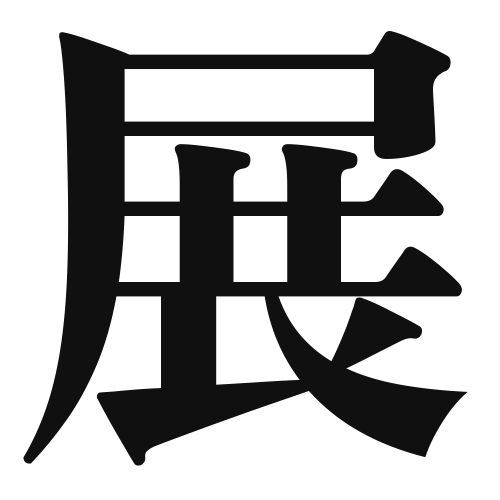1. Overview of Meaning
The kanji 展 (ten) generally means “to expand,” “to exhibit,” or “to unfold.” It is often used in contexts related to exhibitions, displays, and the act of spreading out or extending something.
2. Formation and Radical
Formation: The kanji 展 is a compound character (会意文字) that combines elements to convey its meaning. It consists of the radical 山 (mountain) and the phonetic component 展, which suggests the idea of something spreading out or being displayed.
Radical: The radical of 展 is 山, which relates to the concept of elevation or height, symbolizing the idea of something being spread out or extended.
3. Examples of Usage
Common Words and Phrases: Some frequently used words that include 展 are:
- 展示 (tenji) – exhibition
- 展覧会 (tenrankai) – art exhibition
- 発展 (hatten) – development
Example Sentences:
- この美術館で新しい展が開催されます。
- 彼のビジネスは急速に発展しています。
4. Synonyms and Antonyms
Synonyms: A similar kanji is 拡 (kaku), which means “to expand” but is often used in contexts related to increasing size or scope.
Antonyms: A contrasting kanji is 縮 (shuku), which means “to shrink” or “to contract,” representing the opposite action of 展.
5. Cultural and Historical Background
Relation to Japanese Culture: The concept of 展 is significant in Japanese culture, especially in the context of art and exhibitions, where showcasing creativity and talent is highly valued.
Proverbs and Idioms: One common expression is 展望を持つ (tenbō o motsu), which means “to have a vision” or “to look ahead,” emphasizing the importance of foresight and planning in personal and professional growth.
